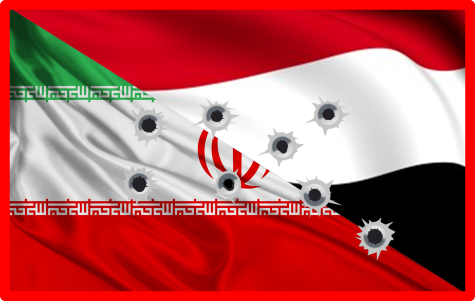LATEST
Even as Iran resumed nuclear talks with the 5+1 Powers on Wednesday, Tehran’s public focus returned to Yemen, as fighting resumed between Saudi Arabia and the Yemeni movement Ansar Allah (Houthis) after a pause of only hours.
The month-long Saudi-led aerial attacks on Ansar Allah, who control the Yemeni capital Sanaa and have advanced into the south, were supposed to end at midnight on Tuesday. However, by Wednesday afternoon, the Saudis were attacking after Ansar Allah captured a military base in Taiz in central Yemen.
Having hailed the halt to fighting as a “positive measure and step”, Iran quickly returned to criticism of the Saudis on Wednesday. MPs issued a statement condemning Riyadh and declaring, “Definitely, the oppressed nation of Yemen will achieve victory through [its] resistance and fortitude.”
Fars News, the Revolutionary Guards outlet which has led the anti-Saudi campaign, claims, “Hundreds of thousands of Yemeni people took to the streets of the capital Sana’a on Wednesday to protest against the Saudi-led airstrikes that have left thousands killed and injured….[They] said that Saudi Arabia is a tool and agent of US and Israel.”
State news agency IRNA offers a new dimension to the Iranian message, proclaiming, “Obama Calls on Iran to Help Resolve Crisis in Yemen“. The agency quotes Obama from a Tuesday night interview, “We’ve indicated to the Iranians that they need to be part of the solution, and not part of the problem.”
Iran, which provides political and economic support to Ansar Allah, has been promoting its 4-point plan to resolve the crisis. On Tuesday, hours before the announcement of the halt to fighting, Tehran was saying that its efforts had brought a ceasefire.
Meanwhile, in the nuclear talks, Iran’s negotiators met the European Union’s deputy head of foreign policy, Helga Schmid, in Vienna.
No details were released of the discussions, the first since a framework was announced between Iran and the 5+1 Powers (US, Britain, Germany, France, China, and Russia) on April 2. Iran’s lead negotiator, Deputy Foreign Minister Abbas Araqchi, said before the session that Tehran’s priority would be clarification on the timing of sanctions removal.
The talks move to New York on Friday, where Iranian Foreign Minister Mohammad Javad Zarif will be at a UN conference on the Nuclear Non-Proliferation Treaty.
Russia Pulls Back on Delivery of S-300 Missile Systems: “Not in Near-Future”
Russia has pulled back from its recent announcement that it will deliver advanced S-300 anti-aircraft missile defense systems to Iran, saying they will not be sent soon.
Deputy Foreign Minister Sergey Ryabkov said, according to the Russian news agency TASS, “I do not think that it is a matter of the near future. It is far more important that a political and legal decision has been taken to open up such an opportunity.”
On April 13, Russian President Vladimir Putin suddenly lifted the suspension of delivery of the S-300s under a contract signed in 2010. Iranian Defense Minister Hossein Dehghan said within days that Iran expected the first systems to arrive by the end of 2015.

